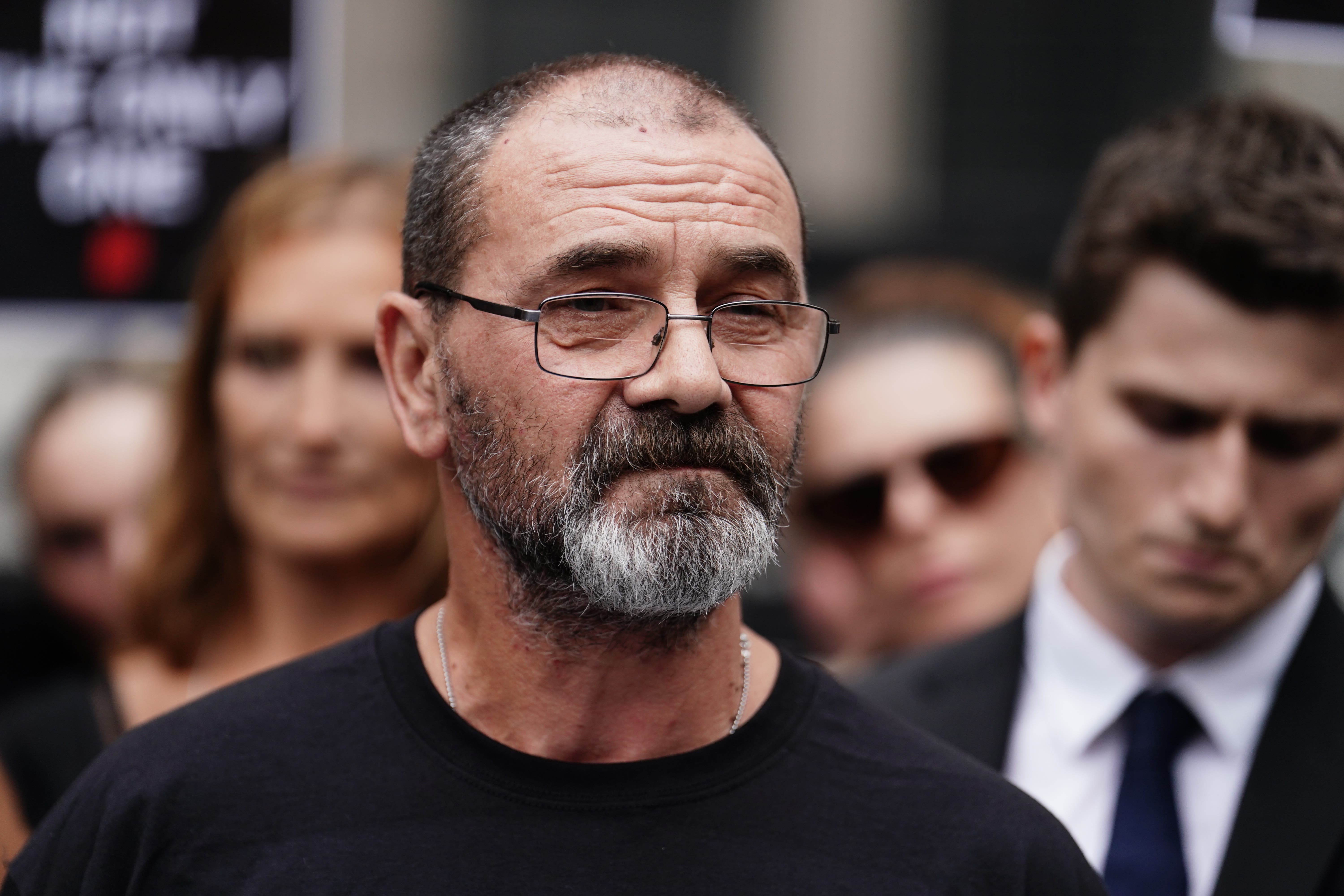Man who was wrongfully jailed for rape says England ‘doesn’t feel like home’
Andrew Malkinson’s conviction was quashed by senior judges at the Court of Appeal on Wednesday.

Andrew Malkinson, who spent 17 years in prison for a rape he did not commit, has said he may look into getting a Dutch passport as England “doesn’t feel like home after what I’ve been through”.
Mr Malkinson, 57, was wrongly found guilty of raping a woman in Greater Manchester in 2003 and the next year was jailed for life with a minimum term of seven years.
He served 10 more years because he maintained his innocence, but his conviction was quashed by senior judges at the Court of Appeal on Wednesday after DNA evidence linking another man to the crime came to light.
As he set off from London for a trip to Holland, where he went backpacking in his youth and has the friendship of a trusted ex-girlfriend, he told the Daily Mirror: “It’s been a long time coming but this is the first day of the rest of my life.
“I was born here but I don’t identify with it and it doesn’t feel like home after what I’ve been through.
“I feel more Dutch than English and I’d like the Foreign Office to negotiate a Dutch passport. I don’t think it’s a big ask on humanitarian grounds.”
The newspaper said Mr Malkinson has missed out on seeing his son grow up hopes to visit his sisters and their children in Australia, but also has to deal with type 1 diabetes.
He told the newspaper: “I’m not well. If I make 70 I’ll be doing well.”
Mr Malkinson is now also concerned that he could, under current rules, face deductions from any compensation for the living costs covered during his time in prison.
The rules can be traced back to a 2007 ruling by the House of Lords, at a time when it was the country’s highest court.
The chairman of the Commons Justice Committee Sir Bob Neill has added his voice to concerns about current practice.
Sir Bob told BBC Radio 4’s Today programme: “I think any fair minded person thinks this is just wrong.
“It goes back to a tightening of the rules of criminal compensation or compensation for miscarriages of justice in this case, by the Labour government in 2006.
“And the argument that was made was that the public might be potentially offended for forking out money towards people who are cleared on technicalities.”
He added: “The Malkinson case manifestly is not being cleared on a technicality. The DNA evidence makes it abundantly clear.
“To say it’s adding insult to injury is probably to put it more mildly than it deserves.
“It’s clearly not right that somebody who was deprived of their liberty, because of the failures of the state and its institutions for a number of years, then should pay the state or be obliged to give some money back to the state, for the privilege of having been wrongly incarcerated.
“That surely offends any any kind of sense of justice.”
He said that he would like ministers to change the rules to protect those wrongly convicted from paying such costs.
“The sums involved are trivial in the overall scheme of things,” he said.
Mr Malkinson’s mother Tricia, 76, said he has been “damaged” by injustice, and urged the public not to forget him as he will still need to find fairness and his place in society.
She told The Times: “This is not about the money, it’s about the fact he’s lost 20 years of his life.
“He’s an intelligent man and this has been a waste of his life — I wonder what he could have achieved if this hadn’t happened. This is only the beginning.”
The court will decide later whether Mr Malkinson’s convictions were also unsafe because of what his lawyer Edward Henry KC called “deplorable disclosure failures, which mostly lay at the door of the Greater Manchester Police”.
They include police photographs of the victim’s left hand, which supported her evidence that she broke a nail scratching the face of her attacker, and the fact the two witnesses who identified Mr Malkinson had convictions for dishonesty offences and one was a heroin addict.
None of this was available to Mr Malkinson’s defence team at his trial and Mr Henry said the failure to disclose the photographs “deprived” Mr Malkinson of his “strongest defence point – his lack of any facial injury”.
